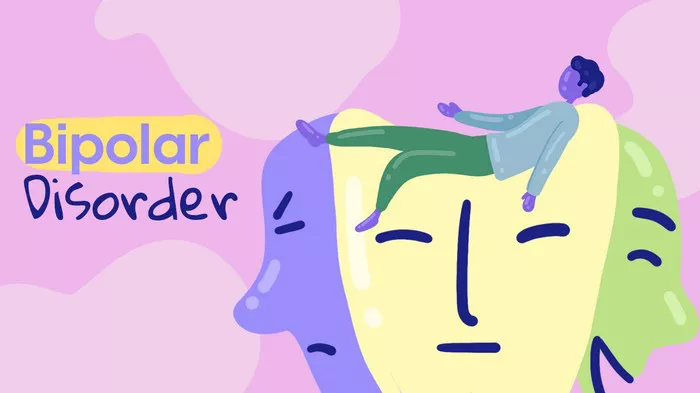Researchers at the University of Cambridge have developed a groundbreaking mindfulness therapy designed specifically for teenagers, aiming to address the rising levels of depression and mental health issues among young people. This innovative approach teaches participants to recognize and manage negative thought patterns that can contribute to depression, encouraging them to focus on the present moment instead.
The program, known as ATTEND (Adolescents and Carers Using Mindfulness Therapy to END Depression), was developed in collaboration with King’s College London and includes sessions for parents and guardians, ensuring a family-centered approach to mental health support. The initiative is funded by the National Institute for Health and Care Research.
Depression is a significant concern for teenagers in the UK, with approximately 140,000 young people aged 15 to 19 affected. However, only about 35,000 receive treatment, and of those, around 14,000 do not respond, while an additional 8,000 experience a relapse after initial improvement. This underscores the urgent need for more effective and sustainable mental health solutions.
Professor Tamsin Ford, Head of the Department of Psychiatry at the University of Cambridge, noted, “Many young people struggle with their mental health but do not receive adequate support through the NHS. Existing treatments are often ineffective for more than half of those who do seek help. While adult mindfulness courses have proven beneficial, we recognized that a different approach is necessary for teenagers. This new therapy is designed to be more engaging and relevant to their experiences.”
The ATTEND program is based on Mindfulness-Based Cognitive Therapy (MBCT), an evidence-based treatment recommended by the National Institute for Health and Care Excellence (NICE) for adults with recurrent depression. The research team, including experts from King’s College London, the Universities of Exeter, and Surrey, has adapted MBCT to better suit the needs of adolescents.
Teenagers participating in the program will engage in eight weekly skills-based sessions, offered either in person or online, in group settings. The ATTEND initiative also includes the development of an app to help reinforce the skills learned during sessions, enhancing the overall experience for participants.
In contrast to traditional MBCT, the new program incorporates sessions for both teenagers and their parents or caregivers. It features more movement breaks, shorter practice sessions, and activities tailored to appeal to a younger audience.
Professor Patrick Smith from King’s College London emphasized the challenges families face when supporting a teenager with depression. “Parents often find it difficult to know how best to help their children. Our course provides parallel training for parents alongside the teens’ sessions, which we hope will enhance their understanding and support of their child’s recovery while also benefiting their own mental health and family dynamics.”
The effectiveness of MBCT for teenagers is still under investigation. The ATTEND program will conduct a large-scale trial across England to determine whether the new mindfulness approach is more effective than current NHS treatments for depression. Researchers aim to recruit 480 teenagers and their parents, with half participating in the mindfulness groups and the other half continuing with standard care. The study will assess recovery rates, relapse prevention, and cost-effectiveness compared to traditional treatments.
Professor Ford added, “Our primary goal is to evaluate whether our mindfulness course can help teenagers recover from depression and prevent relapses. We are also interested in the potential benefits for their caregivers. If effective, we hope to integrate this approach into NHS services, making it accessible to a larger number of teenagers facing mental health challenges.”
Young people and parents who have experienced depression have been actively involved in designing the ATTEND program, ensuring it meets the needs of families and remains engaging for both teenagers and caregivers.
The ATTEND team is currently recruiting 15- to 18-year-olds experiencing depression or low mood, who have received some treatment but have not fully recovered, to participate in the trial in locations including Cambridge, Peterborough, London, Devon, Sussex, Nottingham, and Oxford. Participants will receive a financial incentive of £60 for completing the study. For more information, interested individuals can visit the ATTEND study website.
Kat Nellist, a young adult who has experienced anxiety and depression since childhood, shares her journey with mental health. Diagnosed with anxiety and depression in her pre-teens, Kat struggled to connect with traditional therapies until she discovered mindfulness-based cognitive therapy (MBCT) at age 15.
“CBT teaches you to distance yourself from your thoughts, but MBCT takes it further by helping you accept those thoughts without letting them control you,” she explains. “It allowed me to be present in the moment, even when negative thoughts arose.”
Now in her mid-twenties and studying Psychology at Goldsmiths, University of London, Kat continues to apply the coping mechanisms she learned during her therapy. As the patient and public involvement co-lead for the ATTEND study, she emphasizes the importance of a teenager-centered approach.
“Teenagers often slip through the cracks when it comes to mental health support,” she says. “Intervening early can prevent future pain and provide essential support during a critical time in their lives.”
Related Topics:
-
Can Music Therapy Become An Urgently Needed Breakthrough In Dementia Care?
-
Researchers Use Cerebrospinal Fluid To Unlock Pathways For Alzheimer’S Disease
-
Internet Use Promotes The Mental Health Of The Global Elderly


